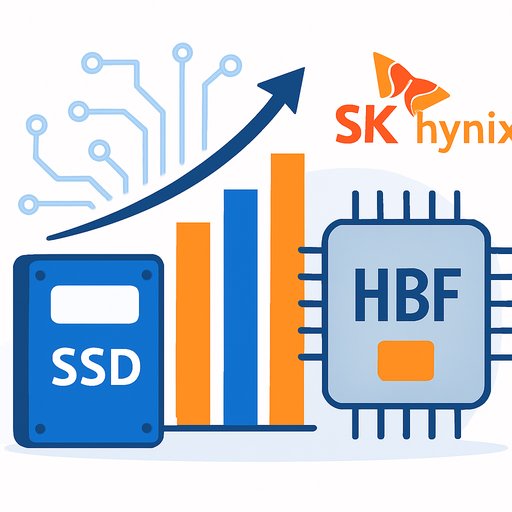UMG's AI stance in one line
"We will NOT license any model that uses an artist's voice or generates new songs which incorporate an artist's existing songs without their consent." - Sir Lucian Grainge
Universal Music Group is moving fast on generative AI partnerships while drawing a hard boundary: artist consent and responsible training are non-negotiable. For creatives and product teams, that sets clear rules of engagement-and opens a pipeline of new, monetized fan experiences.
What UMG is building (and with whom)
UMG is actively working with nearly a dozen AI companies on products that expand how music is created, discovered, and monetized. Existing agreements span major platforms (YouTube, TikTok, Meta) and newer players (BandLab, Soundlabs), plus regional partnerships like Universal Music Japan with KDDI for new Gen AI fan experiences.
UMG is also collaborating with developers such as ProRata and KLAY on attribution, accuracy, and compensation-tools built to protect rights while growing revenue. Spotify's recent integration with ChatGPT is cited as a signpost: moving from query to discovery to listening inside a monetized system.
The product principle: consent + provenance
Two pillars drive UMG's approach. First, consent: no licensing for models trained on artist voices or songs without explicit approval. Second, responsible training: only models with defensible, rights-respecting data practices are in play.
Translation for teams building tools: consent capture, attribution, and auditability aren't features-they're table stakes.
Agentic AI and fan interaction
Grainge sees Agentic AI-systems that use dynamic reasoning and adaptation-reshaping how fans interact with artists and discover music. Expect interactive experiences, creative co-pilots, and context-aware discovery that connect catalogs, moments, and fan intent in real time.
Policy and enforcement: the other half of the strategy
UMG is pushing back on proposals to allow training on copyrighted works without consent or compensation. The company calls these efforts unauthorized and believes they are illegal uses of creative property.
Active actions include litigation against Anthropic (alleged use of copyrighted lyrics to train Claude) and against AI music generators Suno and Udio (alleged infringement in model training). On the defensive tech front, UMG signed with SoundPatrol, a Stanford-led company that protects artists' works from unauthorized use in AI music generators.
On platforms, UMG's Artist-Centric principles were introduced to reduce AI "slop" (platform pollution) and fraud. Partners have since rolled out measures addressing royalty diversion, infringement, and abuse.
What this means for creatives and product development teams
- Bake consent into the workflow: verified approvals for voice cloning, stems, and training inputs. No consent, no deployment.
- Provenance by design: track data sources, training sets, and model versions. Make audits simple and exportable.
- Attribution and payout logic: credit contributors accurately and route royalties in near real time.
- Safety rails: block voice cloning, lyric replication, and catalog-derivative outputs without explicit rights.
- Artist controls: opt-in toggles, usage caps, whitelists/blacklists, and revocation rights.
- Fan experiences that earn: interactive discovery, sanctioned remixes, AI-guided sessions, and dynamic "ask-and-play" flows.
- Fraud detection: watermarking, similarity checks, and rule sets that downrank or remove infringing content.
- Launch with legal: terms cover consent scope, data retention, model updates, and indemnity.
Practical framework: ship responsibly, monetize clearly
- Define consent objects (voice, lyrics, compositions, recordings) and tie them to feature flags.
- Adopt content provenance standards and maintain logs for model inputs, fine-tunes, and outputs.
- Measure what matters: opt-in rate, new revenue per artist, infringement rate, content removals, and fan engagement lift.
- Release in controlled cohorts with kill switches and transparent policy pages.
Opportunities UMG is signaling
- Responsible creation tools that expand an artist's creative range while protecting their voice and catalog.
- AI-assisted discovery that moves from question to play inside monetized experiences.
- New revenue lines for artists and songwriters from approved, trackable AI interactions.
Guardrails UMG will not cross
- No licensing of models that use an artist's voice without consent.
- No generation of new songs that incorporate an artist's existing songs without consent.
- No advancement of products trained on data gathered irresponsibly.
If you build or release AI music products, read this
- Assume rights checks will be audited. Build for explainability and exportable logs.
- Offer artists simple choices: opt in, set parameters, preview outputs, withdraw.
- Tune for quality over volume. UMG and partners are actively reducing "slop."
- Design business models that share value fairly-usage-based payouts, clear rev-share, transparent accounting.
Helpful references
- U.S. Copyright Office: Artificial Intelligence
- Curated AI courses by job role (Complete AI Training)
Bottom line
UMG is open to AI that respects consent, attribution, and artist pay-and closed to anything that doesn't. If you're building for music, ship with consent first, provenance always, and a clear path to artist income. That's the bar to clear if you want your product in this ecosystem.
Your membership also unlocks:










